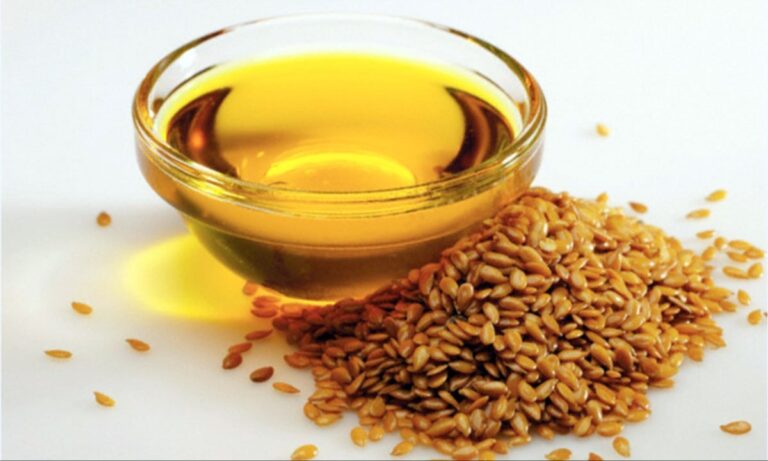Organic flaxseed oil is derived from the seeds of the flax plant (Linum usitatissimum) and is one of the most powerful plant-based oils available. It has garnered significant attention in the health and wellness industry for its numerous benefits, driven primarily by its rich nutrient profile. Flaxseed oil is packed with essential fatty acids, antioxidants, and fiber, making it an excellent addition to a balanced diet. Here’s a deep dive into the world of organic flaxseed oil, exploring its origins, key features, and practical uses in daily life.
What Makes Flaxseed Organic?
For flaxseed oil to be classified as organic, the flax plants from which it is sourced must be grown without synthetic pesticides, herbicides, or fertilizers. Organic farming methods promote soil health and biodiversity, ensuring that the seeds—and the oil extracted from them—are free from harmful chemicals. Organic flaxseed oil is often cold-pressed, meaning the oil is extracted without using heat, which helps preserve its delicate nutrients.
Nutritional Composition of Organic Flaxseed Oil
- Omega-3 Fatty Acids: The standout feature of flaxseed oil is its high content of alpha-linolenic acid (ALA), an essential omega-3 fatty acid. Omega-3s are crucial for heart health, reducing inflammation, and supporting brain function. One tablespoon of organic flaxseed oil typically provides around 7 grams of ALA.
- Lignans: Flaxseeds are one of the richest plant-based sources of lignans, compounds that have antioxidant and estrogenic properties. Although lignans are not found in the oil itself, they can be consumed in ground flaxseeds, which are often used alongside the oil in recipes.
- Antioxidants: Organic flaxseed oil contains antioxidants that help combat oxidative stress in the body, protecting cells from damage and contributing to overall wellness.
- Vitamins and Minerals: The oil is also rich in small amounts of vitamin E, which is beneficial for skin health, and B vitamins, which support energy production and cognitive function.
Health Benefits of Organic Flaxseed Oil
The health benefits of organic flaxseed oil are widely recognized, particularly in the areas of cardiovascular health, skin care, and digestive support.
- Heart Health: The omega-3 fatty acids in flaxseed oil are known to help lower cholesterol levels, reduce blood pressure, and decrease the risk of heart disease. Regular consumption of flaxseed oil can improve arterial health by reducing inflammation and promoting healthy blood flow.
- Skin Health: Due to its anti-inflammatory properties, flaxseed oil is commonly used to improve skin conditions such as eczema, psoriasis, and acne. It helps hydrate the skin, reduce redness, and promote overall skin elasticity. Many individuals also use flaxseed oil as a topical treatment or include it in their diet to nourish the skin from within.
- Digestive Health: Flaxseed oil acts as a natural laxative, making it beneficial for those struggling with constipation. It helps promote regular bowel movements by lubricating the digestive tract.
- Anti-inflammatory Properties: Chronic inflammation is a precursor to many diseases, including arthritis and diabetes. The omega-3 fatty acids in flaxseed oil help reduce inflammation throughout the body, potentially alleviating joint pain and supporting immune function.
- Brain Function: Flaxseed oil’s omega-3 content supports cognitive health and may improve memory, focus, and overall brain function. Some studies suggest that it can help prevent neurodegenerative diseases like Alzheimer’s.
Key Features of Organic Flaxseed Oil
- Cold-pressed: Organic flaxseed oil is often extracted using a cold-press method, ensuring that its nutrients remain intact. Heat processing can degrade omega-3s, so cold-pressing is preferred for maintaining the oil’s nutritional value.
- Light, Nutty Flavor: The oil has a mild, slightly nutty flavor that pairs well with a variety of foods, making it easy to incorporate into your daily diet.
- Versatility: Flaxseed oil can be used in various applications, from salad dressings and smoothies to skincare routines. However, it’s important to note that it should not be used for cooking at high temperatures, as heat can degrade its nutritional properties.
- Shelf Life: Due to its delicate nature, flaxseed oil is prone to oxidation and should be stored in a cool, dark place, ideally in a refrigerator. It has a relatively short shelf life, so it’s best to consume it within a few months of opening.
Uses of Organic Flaxseed Oil in Daily Life
- In Food:
- Salad Dressings: Flaxseed oil makes an excellent base for vinaigrettes and salad dressings. Its light flavor complements greens, vegetables, and even fruit-based salads.
- Smoothies: Adding a tablespoon of flaxseed oil to a morning smoothie is a simple way to boost your intake of omega-3 fatty acids and antioxidants without altering the flavor of the drink.
- Drizzling Over Dishes: You can drizzle the oil over cooked vegetables, grains, or pasta to enhance the nutritional value of a meal.
- As a Supplement: Some people choose to take flaxseed oil directly, either by the spoonful or in capsule form, to ensure they are getting a concentrated dose of omega-3s.
- For Skin Care:
- Moisturizer: Organic flaxseed oil can be applied topically as a moisturizer for dry or irritated skin. It helps lock in moisture and soothes inflamed areas.
- Anti-Aging Treatment: The antioxidants and vitamin E in the oil help combat free radicals, which contribute to aging. Applying flaxseed oil to the skin may reduce the appearance of wrinkles and fine lines over time.
- Healing Balm: It can be used to treat minor wounds or burns, thanks to its anti-inflammatory and healing properties.
- For Hair Care:
- Hair Masks: Flaxseed oil can be applied to the scalp and hair to nourish dry or brittle strands. It helps reduce dandruff and promotes hair growth by improving scalp health.
- Split End Treatment: Applying a small amount of flaxseed oil to the ends of your hair can help minimize the appearance of split ends and improve hair texture.
- For Pets: Flaxseed oil is also beneficial for pets, especially dogs. It can be added to their food to improve coat health, reduce inflammation, and support joint function in older animals.
Choosing the Right Organic Flaxseed Oil
When purchasing organic flaxseed oil, look for products labeled as “cold-pressed” and “unrefined.” This ensures the oil is minimally processed and retains its full nutritional profile. It should be stored in dark, airtight bottles to prevent oxidation, and always check the expiration date to ensure freshness.
In conclusion, organic flaxseed oil is a versatile and nutrient-rich product with a wide array of uses. Whether you’re looking to improve your heart health, enhance your skin, or add a boost of omega-3s to your diet, flaxseed oil can be a valuable addition to your daily routine. Its gentle flavor and powerful health benefits make it an easy choice for anyone interested in natural wellness solutions.
for healthy blogs please visit our site Easy Oat Apple Cake: A Wholesome, Simple Recipe You’ll Love



